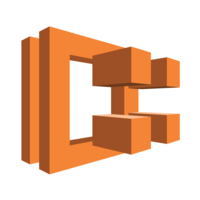Need advice about which tool to choose?Ask the StackShare community!
Amazon EKS vs Docker for AWS: What are the differences?
Introduction
Here we will discuss the key differences between Amazon EKS (Elastic Kubernetes Service) and Docker for AWS.
Managed vs Self-Managed: Amazon EKS is a managed service that abstracts the underlying infrastructure and allows users to focus on deploying and managing their applications, without worrying about managing the control plane. On the other hand, Docker for AWS provides a self-managed environment where users have full control over the Kubernetes cluster, including managing the control plane.
Scalability: With Amazon EKS, the cluster can easily scale up and down based on the workload demands. The underlying infrastructure is automatically managed by AWS, allowing for seamless scalability. In the case of Docker for AWS, users need to manually manage the infrastructure and scaling, which can require more effort and resources.
High Availability: Amazon EKS provides redundancy at multiple levels to ensure high availability, such as multiple availability zones for worker nodes and automatic replacement of unhealthy control plane nodes. Docker for AWS requires users to configure high availability manually, which can be complex and time-consuming.
Integration with AWS Services: One of the major advantages of Amazon EKS is its tight integration with other AWS services. It seamlessly integrates with services like Elastic Load Balancing, AWS Identity and Access Management (IAM), Amazon CloudWatch, and AWS App Mesh, making it easier to build and manage applications on AWS infrastructure. Docker for AWS may require additional configuration and integration efforts to use these AWS services.
Updates and Maintenance: Amazon EKS takes care of updating and patching the Kubernetes control plane components. Users only need to manage the lifecycle of worker nodes. With Docker for AWS, users are responsible for managing the updates and maintenance of both the control plane components and worker nodes, which can be time-consuming and prone to errors.
Cost: Amazon EKS offers a pay-as-you-go pricing model, where users only pay for the resources they use, making it cost-effective for smaller workloads. Docker for AWS requires users to manage and provision the infrastructure themselves, which may entail additional costs for managing resources and infrastructure overhead.
In Summary, Amazon EKS is a managed service that offers scalability, high availability, tight integration with AWS services, automated updates, and a cost-effective pricing model. Docker for AWS, on the other hand, provides a self-managed environment with more control but requires manual management of scalability, high availability, updates, and integration with AWS services.
If you want to integrate your cluster and control end to end your pipeline with AWS tools like ECR and Code Pipeline your best option is ECS using a EC2 instance. There are pros and cons but it's easier to integrate using cloud formation templates and visual UI for approvals, etc. ECS is free, you need to pay only for the EC2 instance but unfortunately, it is not standard then you cannot use standard tools to see and manage your Kubernetes. EKS in the other hand uses standard Kubernates definitions but you need to pay for the service and also for the EC2 instance(s) you have in your cluster.
Pros of Amazon EKS
- Better control1
- Possibility to log in into the pods1
- Broad package manager using helm1
Pros of Docker for AWS
Sign up to add or upvote prosMake informed product decisions
What is Amazon EKS?
What is Docker for AWS?
Need advice about which tool to choose?Ask the StackShare community!
What companies use Amazon EKS?
What companies use Docker for AWS?
Sign up to get full access to all the companiesMake informed product decisions
What tools integrate with Amazon EKS?
What tools integrate with Docker for AWS?
Sign up to get full access to all the tool integrationsMake informed product decisions
Blog Posts
Rafay Systems



































